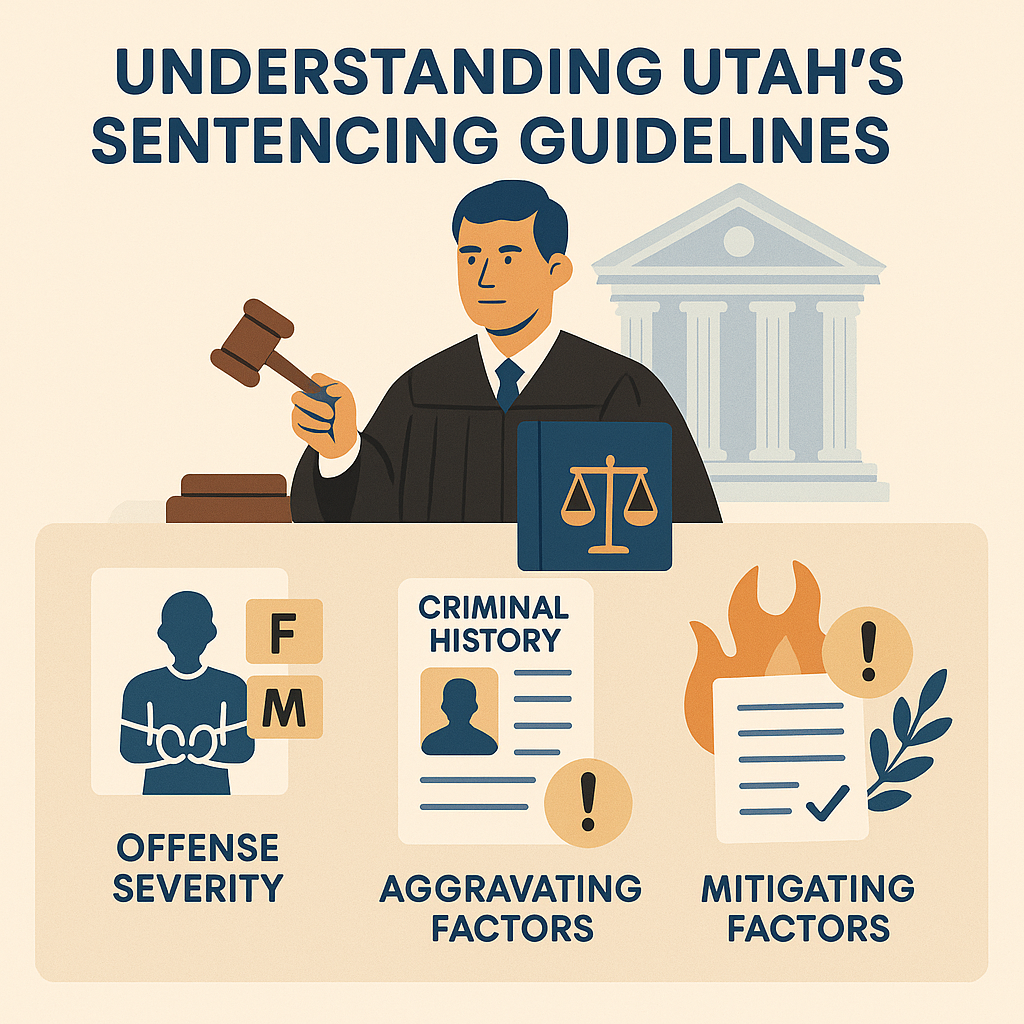Understanding Utah’s Sentencing Guidelines
What judges consider before sentencing – offense severity, criminal history, and aggravating or mitigating factors
Utah judges follow structured sentencing guidelines to encourage fairness and consistency. These are recommendations, not strict rules. Judges keep discretion within legal limits, but the guidelines provide a clear framework so similar cases receive comparable outcomes.
The Purpose of Utah’s Sentencing Commission Guidelines
Utah’s Sentencing Commission publishes guidelines to balance accountability and rehabilitation. The aim is to reduce unpredictability while allowing judges to tailor sentences to the facts of each case.
Two defendants with similar offenses and records should receive similar penalties unless unique facts justify a different result.
How Judges Weigh Offense Severity and Criminal History
Sentences start with two core components that drive the presumptive range from probation to prison.
Aggravating vs. Mitigating Factors
Courts may move up or down from the presumptive range when facts justify it.
Defendants can present mitigating evidence before sentencing, including treatment records, community service logs, and support letters.
Types of Sentences in Utah
Judges often combine tools, such as a suspended prison term plus probation and treatment.
Plea Deals and Sentencing Ranges
Most Utah criminal cases resolve through plea bargaining. The parties may propose a sentence or range, but the judge must independently review it against the guidelines and Utah law. The final sentence must be lawful and reflect justice for both the victim and the community.
Victim Impact Statements and Restitution Orders
Before sentencing, victims may submit impact statements describing emotional, physical, and financial harm. Courts also address restitution, which is court-ordered repayment for financial losses caused by the crime.
Sentence Appeals and Modifications
Defendants can appeal a sentence they believe is improper or excessive. Post-sentencing motions may also seek modification based on new information, rehabilitation, or calculation errors. These steps must follow strict timelines in the Utah Rules of Criminal Procedure.
Learn More – Official Resources
Official References
YouTube – Related Videos
Need Help Applying This To Your Case?
Utah’s guidelines promote consistency while leaving room for individualized justice. Understanding how offense severity, history, and case facts interact can help you prepare for sentencing.
Talk to a Utah AttorneyThis article is legal information, not legal advice. Always discuss your situation with a licensed Utah defense attorney. For more plain-English guidance, explore Utah Law Explained or connect with trusted counsel like Gibb Law Firm.
